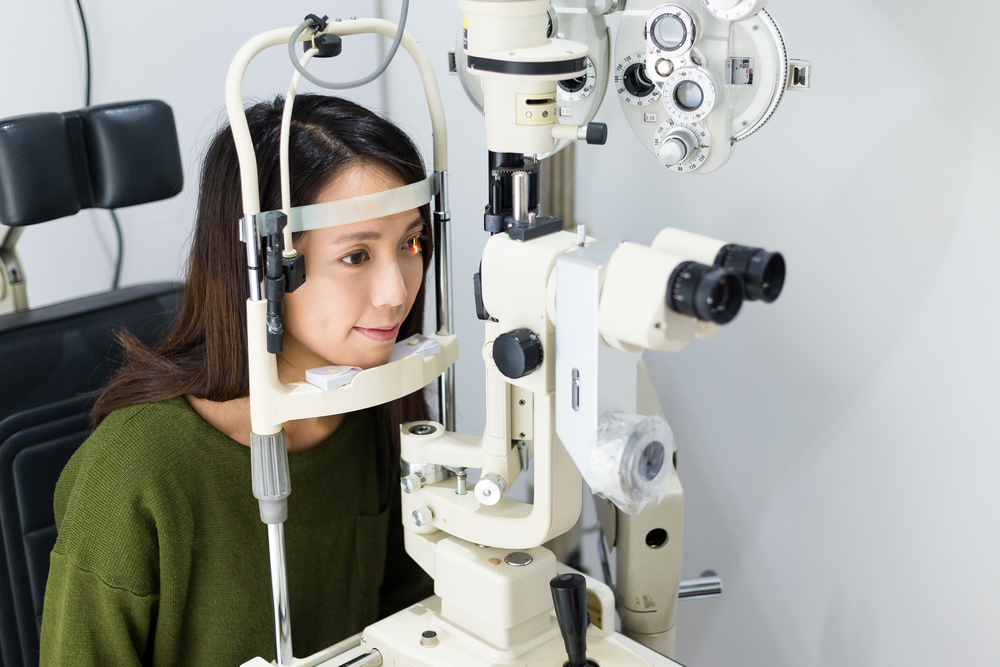Blog:What to Expect During a Comprehensive Eye Exam

What to Expect During a Comprehensive Eye Exam
What to Expect During a Comprehensive Eye Exam
A comprehensive eye exam is one of the most valuable steps you can take toward maintaining healthy vision and ensuring your overall eye health. At Texas State Optical Liberty, we’re dedicated to making this experience comfortable and informative, so you know exactly what’s happening at each stage.
The Importance of Regular Comprehensive Eye Exams
Regular comprehensive eye exams are crucial for maintaining optimal eye health and ensuring clear vision. Beyond simply checking for changes in prescription, these exams allow eye doctors to detect early signs of serious conditions like glaucoma, macular degeneration, and diabetic retinopathy—often before symptoms even begin. Early detection through routine exams can prevent vision loss and make treatments more effective.
Additionally, comprehensive eye exams can reveal broader health issues, such as high blood pressure and diabetes, as certain symptoms appear in the eyes before they’re noticeable elsewhere. By prioritizing regular eye exams, individuals can protect their vision and overall health, allowing for timely intervention and peace of mind.
Most adults benefit from annual eye exams to stay ahead of changes in vision and eye health. However, your optometrist may recommend a different frequency based on your unique needs. Let’s walk through what you can expect during your comprehensive eye exam with us.
Medical History and Vision Concerns
Your exam starts with a conversation. We’ll ask about your vision history, any eye-related symptoms, medical conditions, and medications. Sharing these details helps us identify factors that may impact your eye health, like family history of glaucoma or diabetes.
Preliminary Tests
After discussing your medical history, a technician may guide you through some initial tests to get baseline information on your eye health. These may include:
• Visual Acuity Test: To measure how well you can see letters or symbols from a distance.
• Pupillary Reactions: To evaluate how your pupils respond to light and movement.
• Eye Muscle Function Test: To assess how well your eye muscles work together.
• Visual Field Test: To check for blind spots or other vision issues.
These tests provide us with essential data, helping your optometrist focus on areas that need closer examination.
Refraction Assessment
The refraction test determines your precise prescription for glasses or contact lenses. You’ll look through a device called a phoropter, where you’ll be asked which lenses make letters appear clearer. This test is key to identifying nearsightedness, farsightedness, and astigmatism and ensuring your prescription is up to date.
Binocular Vision Testing
Our optometrists may test your binocular vision—how well your eyes work together. This step is essential for those experiencing eye strain, double vision, or discomfort during prolonged screen use. If any imbalances are found, we can offer solutions such as special lenses or eye exercises to improve comfort.
Eye Health Examination
Using specialized equipment, your optometrist will examine the internal and external parts of your eyes to check for signs of eye diseases. Here’s what this examination might include:
• Slit Lamp Exam: A detailed look at the front of your eye, including the cornea, iris, and lens, to spot any abnormalities.
• Intraocular Pressure Test: Also known as the “puff of air” test, this measures pressure inside your eye to assess the risk of glaucoma.
• Retinal Exam: To get a clear view of the retina, optic nerve, and blood vessels at the back of your eye. We may use dilating eye drops to expand your pupils, allowing us a thorough look at the internal structures of your eyes.
We may recommend additional tests based on your age, risk factors, and symptoms. These could include imaging tests like an OCT (Optical Coherence Tomography), which captures detailed images of your retina layers, or corneal topography for mapping the surface of your cornea.
Your Results and Personalized Care Plan
Once your exam is complete, your optometrist will discuss your results with you. We’ll explain any findings, recommend lifestyle changes if needed, and guide you through options if you need corrective lenses or specialized treatments.
Schedule Your Comprehensive Eye Exam with Texas State Optical Liberty Today
Regular comprehensive eye exams are an essential part of maintaining your vision and overall health. These exams offer early detection of potential eye conditions and give you the confidence of knowing your eye health is in expert hands. At Texas State Optical Liberty, we’re committed to helping you see clearly and live comfortably through all stages of life.
Schedule your comprehensive eye exam with Texas State Optical Liberty and take the first step towards protecting your vision and health for years to come. Visit our office in Liberty, Texas, or call (936) 336-2273 to book an appointment today.


